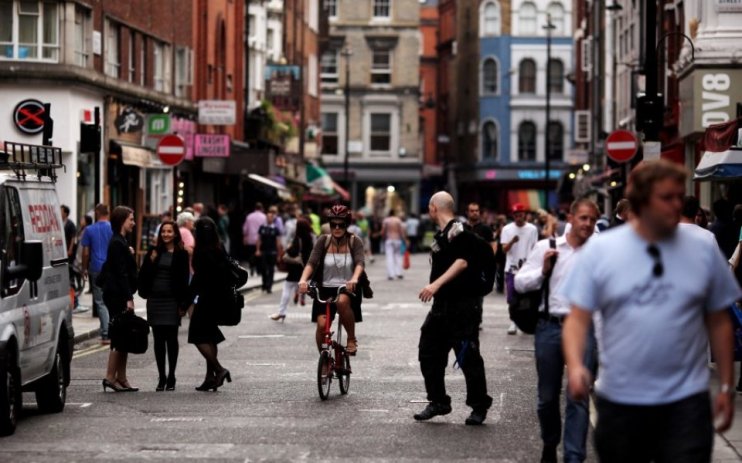Bringing London back to life is about more than a return to offices – the capital is fighting for its soul

Everyone who has moved to London from somewhere else remembers their first night here. I remember mine. My wife and I had dinner in a tiny Indian restaurant in Wembley near the GPs surgery where she’d be working as a nurse. I didn’t have a job yet – but I had that pure excitement that comes from being young in a new city. I’m not sure the food was even that great. It didn’t matter. We were in London.
You can make a pretty solid argument that cities are humanities’ greatest achievement.
They are the purest example of the agglomeration effect. Environmental impact per person is lower. Productivity is higher. Creativity explodes. The great cultural achievements of history come from our cities. The best art and theatre. The greatest breakthroughs in science, in medicine, and in commerce.
You’ll meet more people. You’ll earn more. You’ll be happier. The coffee is better. That pizza place everyone is raving about will actually be good.
It’s easy for that to get lost in all the talk of coronavirus signalling the end of the great migration into urban centres. It’s fashionable to say that with virtual working the costs of being in the city no longer outweigh the benefits, and young people in particular will want to leave permanently – or never come at all.
There is data to support this if you look for it. One study suggested that London’s population fell by 8% last year. Is that a city shrinking, or just a city catching its breath? Many friends and colleagues left London for some of lockdown, but by and large they are back and desperate for a London summer.
The resilience of businesses and people in the face of coronavirus has been impressive, but it’s hardly a blueprint for economic growth or cultural renewal. Nor is it a blueprint for personal happiness.
Reducing the power of cities to networks of atomised workers connected by nothing but Zoom calls and google documents entirely misses the point.
Home working relies on existing relationships. We are using the personal capital we have built in our pre-corona lives. The chance meeting in the office – or after work – which drives creativity is far harder to reproduce. You are much less likely to be introduced to your colleague’s friend who just happens to run a business solving that problem you haven’t been able to crack. The innovation that comes from different worlds colliding fades away. Streaming box sets is no substitute for the sheer joy of a night in London after work with friends. For younger people the loss of the opportunities being in a physical city brings would be a permanent barrier. How can they develop their own networks? How do they grow as people?
Ultimately, remote working cannot replicate the soul of a city. And soul matters.
Soul also makes us globally competitive. When London & Partners brings a company to London from India, or from New York, we are selling a world class business destination. We are also selling a city with soul. When a company is looking for a place to expand their business, they want to open somewhere where their best talent will compete to be sent. It’s a fact that London’s strength as a cultural centre is as important for attracting inward investment as tax or regulation.
That is even more true for the businesses which are driving future growth and innovation. If we want to attract the next generation of tech leaders, we need to welcome them to a city which is genuinely alive.
There is an interesting trend with these companies to look towards a new generation of cities. Stockholm, Tel Aviv and Helsinki are as much in the mix for these entrepreneurs as London, or New York. For companies which see themselves at the frontier of a new economy there is an emotional pull to cities which still feel new. If we want to outcompete, a vibrant cultural life is how we will do it.
The difficulty is obvious. Culture will bring investment and visitors back to our city. But culture needs those visitors to sustain itself. What do we do?
There will be a period between restrictions being lifted, and tourists and global investors coming back in their old numbers. That is the time when we can all play our part. If we get out from behind our screens, we can reclaim our city, support our leisure industry and keep the soul of the city alive.
There is also a sense that crises are an opportunity to renew. Developments like the Camden highline and the Marble Arch viewing platform will get headlines for their creativity, and we should expect a new wave of pop up restaurants, shops and bars finding new uses for London’s idiosyncratic spaces and filling in the cracks that coronavirus leaves behind it. Like the Japanese art of pottery repair, culture glues a city back together with shining golden threads.
We have a choice as the world recovers from coronavirus. We can live remote lives, slowly burning through the reserves of our social and cultural capital. Or we can remember the fact that everyone arriving in London for the first time has known immediately: cities are amazing.